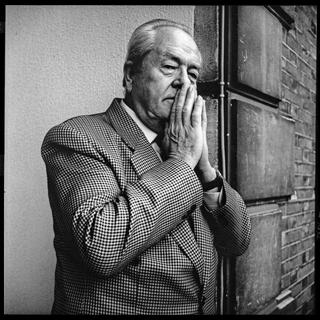


Jean-Marie Le Pen, who put the far right back at the heart of French politics, has died
ObituaryFrom his election as France's youngest MP in 1956 to his daughter Marine Le Pen taking the party he founded to new heights, Jean-Marie Le Pen was present at every stage of the French far right's post-war history. He died on Tuesday, January 7, at the age of 96.
There are political events that immediately become history. April 21, 2002, was one of them. In a presidential election the left was widely expected to win, a "thunderclap" burst. Jean-Marie Le Pen qualified for the second round instead of Lionel Jospin, the Socialist who had been prime minister during five years of cohabitation with the scandal-plagued right. Le Pen would face Jacques Chirac, the president since 1995.
Le Pen, the pariah, the extremist, who had denounced "the cronies and the rascals" and the "gang of four" since he started in politics, was finally playing on the same court as them. It was the crowning achievement of a political career that began almost half a century earlier.
The far-right candidate would be easily defeated by Chirac (82.21% to 17.79%), after daily demonstrations against his party, the Front National (FN), which climaxed at a May Day parade that brought together huge crowds to say "no" to Le Pen. But 2002 also marked the start of the FN's second phase of growth, which would culminate, more than 20 years later, in the party becoming one of the country's main political forces, under the name Rassemblement National and the leadership of his daughter, Marine Le Pen.
Jean-Marie Le Pen died on Tuesday, January 7, at the age of 96. He was the man who put the far right back in the heart of the French political game. Almost extinct at the Liberation due to the post-war purge, discredited by its collaboration with the Nazi occupiers and the Vichy regime, the far right found strength, vigor, longevity and a popular base 40 years later when the FN, led by Le Pen, made its initial breakthroughs, first in the city of Dreux during a municipal by-election in 1983, then in the European elections of 1984.
You have 93.11% of this article left to read. The rest is for subscribers only.
